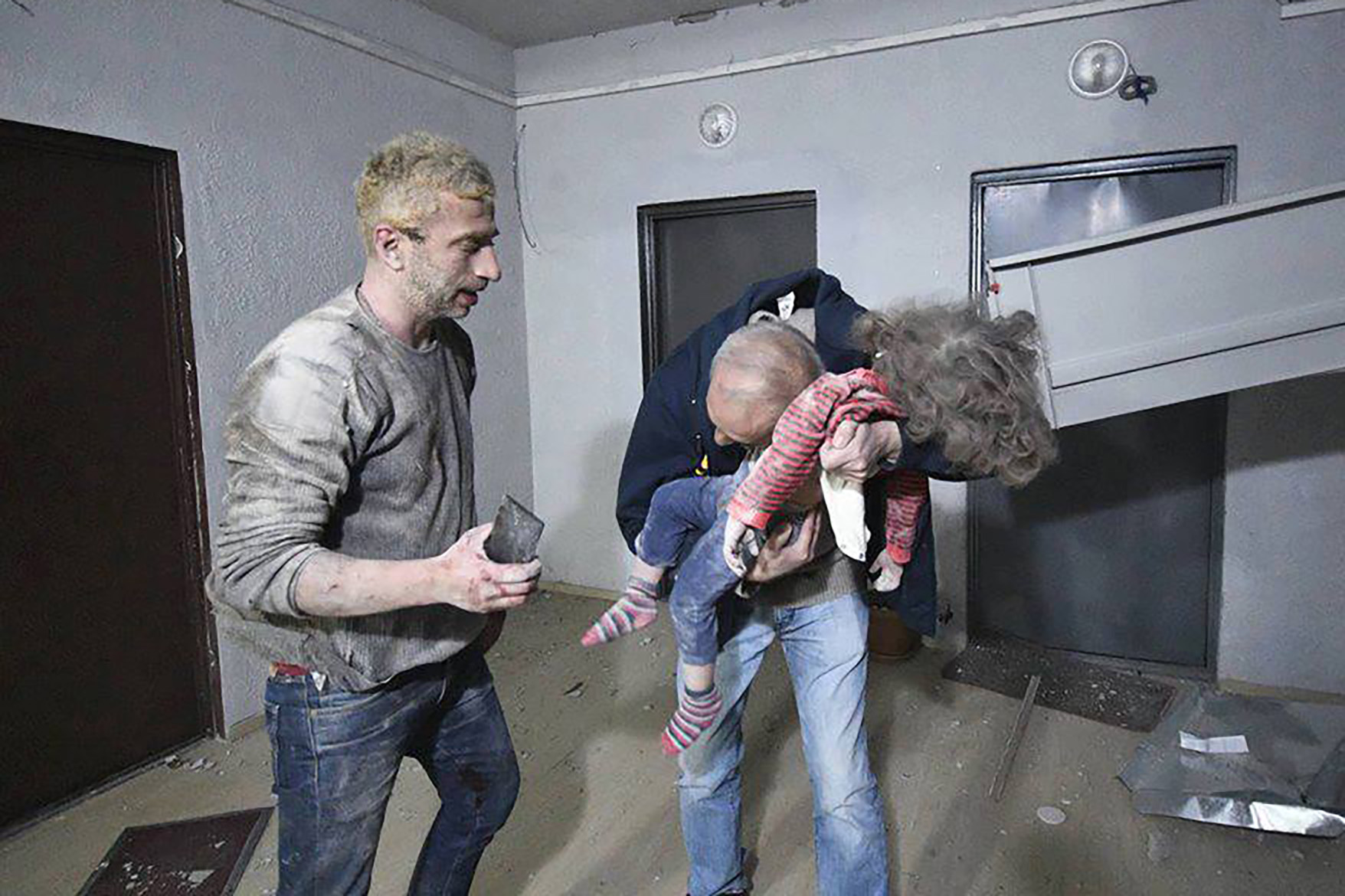
An explosion in the Georgian capital, Tbilisi, has left four people dead including a toddler, and eight others injured. Preliminary findings by the authorities suggest a gas leak was the cause of the blast.
As investigations into several similar incidents that recently took place are still pending, officials called for changes in legislation to prevent future fatalities.
Flags were flown at half-mast in government buildings on Thursday after Prime Minister Mamuka Bakhtadze declared a day of mourning.
The explosion occurred on Wednesday evening on Avtandili Street, in the city’s Didi Digomi district.
A flat on the 6th floor of a newly built nine-storey residential building exploded, completely demolishing the outer wall of the flat and shattering the windows and doors of neighbouring flats.
Residents of the building told local media they had called KazTransGas Tbilisi, the city’s main gas supplier, twice to inspect a suspected gas leak, as they said they could smell gas in the neighbourhood throughout the day. According to them, inspectors from the company failed to identify the source of the leak.
Among the eight people wounded were 6 children; all of them were transported to local hospitals.
Thirty-one people affected by the incident have been provided with temporary shelter by the Tbilisi Mayor’s Office.
What caused the incident
The Georgian Interior Ministry has launched an investigation into a possible fatal breach of safety regulations during the construction or operation of gas facilities.
Georgian Energy Ombudsman Salome Vardiashvili, who is responsible for defending consumer rights under the Georgian National Energy Regulation Commission, vowed on Wednesday to ‘thoroughly study’ whether the building was properly connected to the gas network.
In her statement, she speculated of possible ‘negligence or unprofessionalism’ from a technician who reportedly failed to identify the gas leak on the location.
KazTransGas Tbilisi responded to the incident with a statement saying they were investigating what happened. The company said they would make an official statement after they clarify details.
Another revelation adding up to what could have triggered the incident was made by the Mayor’s office as they said that the building where the incident happened had not been approved for use.
A spokesperson told Georgian news site Liberali that after constructions are completed in Tbilisi, the Mayor’s Office Supervision Department must issue a decree confirming that the building is suitable for use, but that no such decree was issued for the building in question.

But Deputy Mayor Ilia Eloshvili told TV Pirveli that legislation does not ban owners from moving into their flats before a decree is issued, although ‘it’s preferable to do so after all the procedures are over’.
He also said that while KazTransGas supplies buildings with gas infrastructure, they do not always install gas metres themselves, as other companies are allowed to do so as well.
He said that very often, unqualified companies install gas metres and heaters, although it was not yet known who was responsible for doing so in this particular flat.
A broader issue
The statement from Georgia’s Energy Ombudsman drew attention to a broader problem with regulations within the gas industry.
Ombudsman Salome Vardiashvili stressed that recent incidents indicated there were ‘systemic problems’ that needed to be addressed with a complex approach.
‘[Natural gas network management] regulations do not fully answer to the safety challenges, as they are not fulfilled by licensed companies. And service provider companies are urged to accept them in the form that building companies provide them’, the statement said.
Georgian Public Defender Nino Lomjaria called on the government to place fire safety guarantees into the national legislation.
‘The Public Defender once again calls on the government to define a list of banned building materials, as many of them are characterised by instability, flammability, and other harmful traits’, Lomjaria said in a statement.
Gas leak fatalities
According to the Energy Ombudsman’s 2017 gas report, 2017 was the most deadly year on record in terms of consumer safety.
‘With the arrival of the winter, the situation became worse in the regions, especially in Rustavi town, where up to 10 fatalities were registered in February–March’, the report said.
This included gas leakage reports from several gas suppliers.
For example, according to the report, three explosions were reported in the operational area of KazTransGas Tbilisi in 2017, resulting in property damage and injury to one person.
Nine gas leaks were reported in the operational area of Socar Georgia Gas in the same year, resulting in 3 deaths.
In the operating area of SaqOrgGas, 142 leakages were reported, resulting in 15 fatalities.
‘Analysis of the facts showed that the majority of accidents were caused by improper installation of natural gas devices as well as the use of malfunctioning devices, such as various heaters and gas water heaters’, the report noted.




 17 January 2019
17 January 2019


